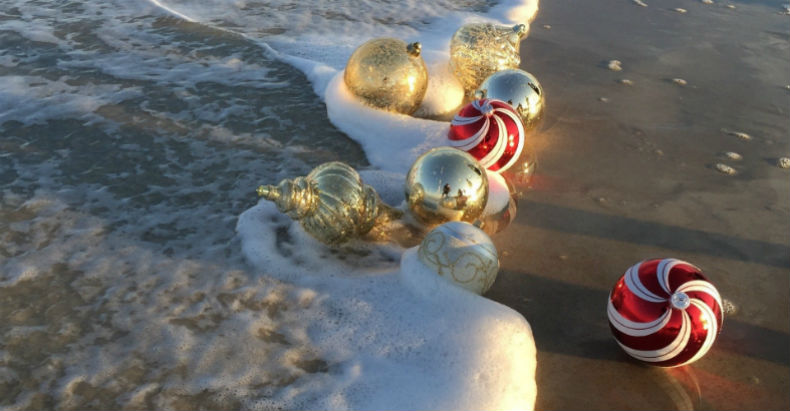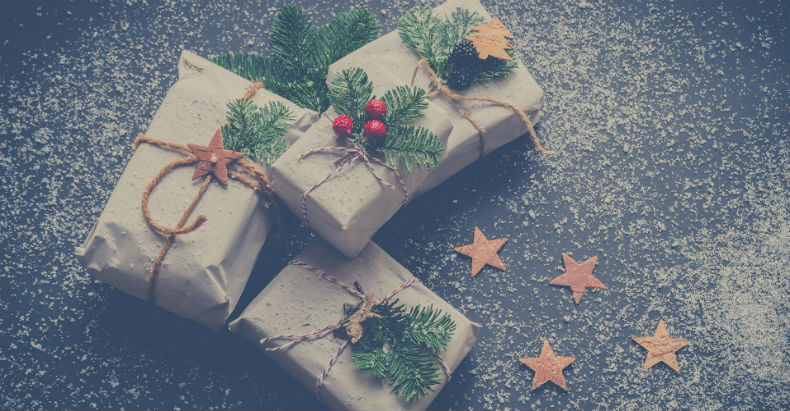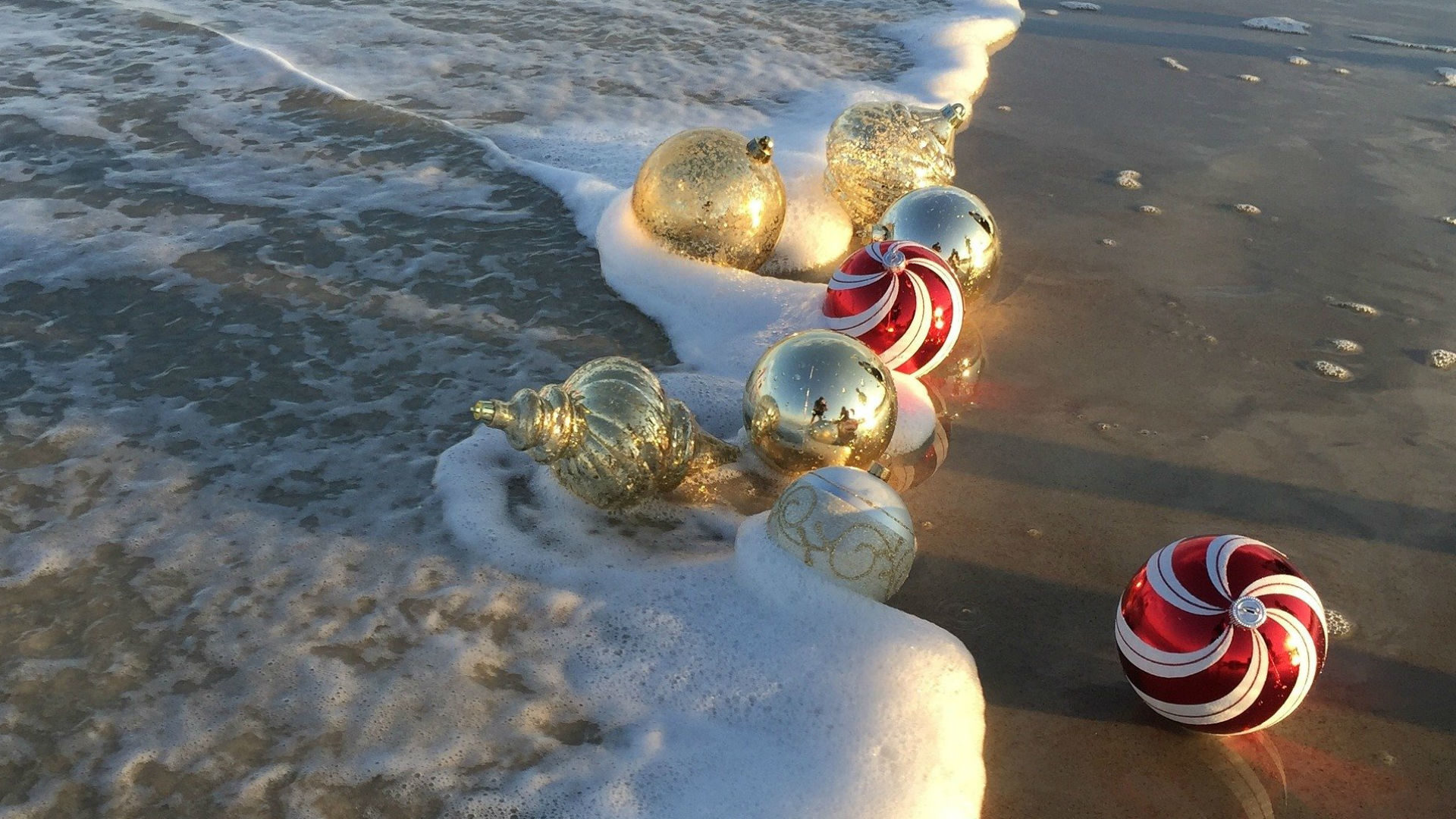
‘Tis the season to be jolly, and there are few things more enjoyable as we make our way through December than shopping for Christmas presents, picking out wrapping paper and planning your menu for the big day.
But with 30% more waste created every Christmas than at any other time of year, plus huge amounts of the food purchased going to waste, spare a thought for our Ocean when preparing for this year’s celebrations.
In 2018, it was estimated that Brits threw out a total of 108 million rolls of wrapping paper once Christmas was over – that’s 227,000 miles of it, which is almost enough to reach to the moon! In addition, it is thought that as a nation, we waste around 4.2 million Christmas dinners every year, which is a sad fact to think about considering many go hungry.
Including 1,315 tonnes of wasted turkeys, 375 tonnes of wasted mince pies and 17.2 million sprouts, not only is the wasted food a huge problem for landfill sites, but the production of these items and their packaging produce vast amounts of carbon emissions and greenhouse gases, as well as creating tonnes of packaging rubbish.
So, what does this all have to do with our Ocean? It turns out, quite a lot.
Many of us are aware by now that excess plastic waste can’t always be recycled and has a habit of making its way into our Ocean. It’s an important one to consider when shopping for gifts if you’re keen to reduce your impact on the health of our Ocean, and especially the animals that live within it.
But despite the prominence of this hugely topical issue, it’s not all about plastic waste alone – and by contributing to climate change via the excess greenhouse gases produced by our waste, we could inadvertently be harming our Ocean, too.
Helen Gowans, Public and Community Engagement Manager at the Ocean Conservation Trust, says: “Climate change is a big topic at the moment, and a vitally important one, too. Although it’s not often spoken about in mainstream media, this can have a detrimental effect on our Ocean.
“The Ocean provides 50% of the oxygen we breathe – that’s every second breath you take. So essentially, we need it to survive. But climate change is causing a range of issues that are impacting it, including acidification and rising sea levels. Our Ocean has a far greater impact on our daily lives than many of us realise, and in turn, we have the power to damage or heal the Ocean.
“The small things we do at Christmas – from leaving the tree lights lit up when we’re out of the house, to buying excessive amounts of food and gifts, all have an effect – and the good news is that we can all do our bit this Christmas to help look after it. That’s why we’re hoping to get as many people as possible to ‘Think Ocean’ this Christmas and make some small changes that together, will create a big and positive impact.”
If you’re looking to make your Christmas more Ocean friendly this year, then read on – because we’ve pulled together five easy tips for an Ocean Friendly Christmas, and whilst it might sound tricky to start with, we can guarantee that all of them are great fun!

5 tips for an Ocean Friendly Christmas
Do your best to reduce food waste by only purchasing what you know you’ll need.
It’s easy to go overboard when you’re expecting guests for Christmas dinner, but try to exercise restraint and take some time to calculate what you need to get before going wild in the aisles.
If you still find that you’ve gone overboard despite your best efforts, then there are plenty of great recipes out there to help you to use up leftovers. From cooking up boxing day bubble and squeak to creating sauces, pickles and soups, many of which can be frozen and used at a later date, there are plenty of tasty ways to repurpose what you’ve got left and make it last, too.
Reduce Christmas Wrapping Paper Waste
There’s nothing quite like receiving a beautifully wrapped gift with ribbons and bows, but glitter, ribbons and plastic in certain papers all make this type of waste unrecyclable. To reduce the amount of wrapping paper going to landfill, instead, opt for recycled papers. Brown paper might seem boing, but it can easily be dressed up with a few decorations, and best of all, it is mostly recyclable and compostable, making it an environmentally friendly choice.
Choose an Ocean-friendly Christmas tree
Last year, over 7 million Christmas trees went to landfill, producing 100,000 tonnes of greenhouse gas. This year, why not purchase a potted Christmas tree that you can replant in your garden after is has served its purpose for the year instead? Next year, you can simply dig it up again and use it throughout the festive period – repeating the process annually for a tree that will last you year after year.
Swap plastic, shop-bought decorations for handmade ones
To reduce your plastic waste this Christmas, side line the shop-bought decorations you usually rely on and try making your own using natural materials. Star by collecting pine cones, fresh holly and mistletoe from your garden or in the local area and use them to create tree ornaments and pretty embellishments for gifts.
Anything made from natural materials can be composted after use, which means not only will you be reducing your overall waste, but you’ll be making the most eco-friendly choice, too.
Regift unwanted presents
Each year, consumers are thought to spend a whopping £700 million on unwanted gifts – many of which sit at the back of our wardrobes until eventually making their way into landfill.
If you’ve been given a present that isn’t quite ‘you’, then why not give it to your local charity shop – or regift it to a friend or family member?
On the flipside, you can also find some great gifts to buy by rifling through charity shop shelves at this time of year. Also consider giving experience gifts instead of material ones, which will enable friends and family to make lasting memories they will cherish forever.

